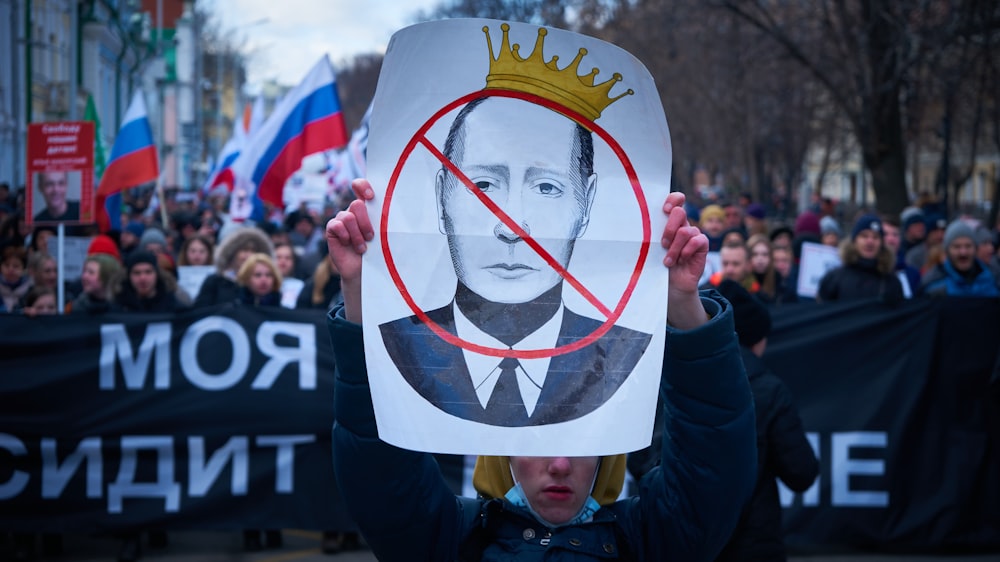Mitch Heimpel: Hockey has an Ovechkin problem
The overt Putin supporter only has to clear a very low moral bar. He won't.
By: Mitch Heimpel
I admit, it's disconcerting to me to see 10-year-olds wear Alex Ovechkin jerseys lately.
They're not the first 10-year-olds to do it, of course. The “Great Eight” has been an electrifying presence in hockey for a generation. Ovechkin now plays with veterans who wore his jersey on outdoor rinks when they were young boys.
That was before the world was witness to mass graves, mass rapes, torture rooms, the separations and deportation of Ukrainian children from their families, and the countless other war crimes that have taken place in Bucha, and at God only knows how many other sites across Ukraine during the war that began one year ago next month.
We are forced to revisit Ovechkin's place in our sports culture. Not because Ovechkin is a Russian. But because he is an overt political supporter of Vladimir Putin. Ovechkin is political because he has chosen to be. He is the Oligarch of Hockey: one of the wealthiest athletes on the planet, whose image graces the cover of video games, whose jersey has been one of the most popular in the league. His wealth, and his chosen connections to Vladimir Putin's Kremlin, are in service to each other.
Ovechkin was trotted out, by the Capitals and the League, at the start of the war to make a statement. He made what could, charitably, be called an abbreviated plea for a general peace, avoided assigning blame to any country or political actor, and ducked any questions about his past associations with Vladimir Putin. It takes next to no communications skill to see this for what it was — a desperate hope by the hockey powers that be that this statement would be enough to make people go away.
In light of Ovechkin's pursuit of hockey's all-time career goals scored record (which saw him match Gordie Howe for second on the list last month), we're forced to take a deeper look at the person that is being so widely celebrated by the NHL and every corporate partner it has.
We are forced to judge our cultural and historical figures. Imposing retroactive moral standards makes for poor history. The thing about Ovechkin is that he fails even against his contemporaries. Being a Russian hasn't stopped Artemi Panarin, one of hockey's other top Russian scorers, from denouncing Vladimir Putin.
And the comparison against which Ovechkin's character suffers the most doesn't come to us from the world of hockey. It comes to us from the recently concluded World Cup.
Iran's national team is 21st in the World Rankings. It has qualified for six World Cups, but never progressed past the group stages. When we think of soccer, we think of Messi or Mbappe or Rinaldo. Most of us would have trouble naming a single player from the Iranian men's team. These are not athletes with the wealth, resources, international fame, or media spotlight of Alexander Ovechkin.
And yet, with protests raging for weeks in their own country, these brave men took the field at the marquee event for their sport, and refused to sing their country's national anthem as a sign of solidarity with the protestors. After having their families threatened by the regime, they took to the field and mouthed the words to the anthem at their next game. They used the moment of their greatest influence in their sport — at enormous personal risk — to put the spotlight on the struggle of women in Iran. That was an act of remarkable courage.
Where is that from the "Great Eight"?
Ovechkin is one of the most well-resourced athletes on the planet. If the safety of his family were a legitimate concern, he could have them safely in the States without much expense or effort. He chooses not to. He has chosen not to for months.
If Ovechkin thinks he's only a hockey player and couldn't possibly influence political events — even taking aside that his PutinTeam efforts clearly demonstrate he knows the scope of his influence — he need only look at the recent history of those who have stood up the Kremlin. Vaclav Havel was a playwright. Lech Walesa was a labour leader. Volodymyr Zelenskyy was a comedian. Ovechkin taking the exact same stand as Panarin would be a seismic political and cultural event in Russia.
The NHL has an interest in Alexander Ovechkin's silence. So do the Washington Capitals. Frankly, so does Ovechkin.
But hockey fans don't.
We shouldn't pretend our children's sporting heroes have ever been saints. It's almost never been the case.
But it's a low bar to ask them to condemn war crimes. It's a low bar to ask them to condemn genocide. It's a bar that one of the world's most infamous athletes should be able to clear with room to spare.
It says something that Alexander Ovechkin can't.
Mitch Heimpel has served Conservative cabinet ministers and party leaders at the provincial and federal levels, and is currently the director of campaigns and government relations at Enterprise Canada.
The Line is Canada’s last, best hope for irreverent commentary. We reject bullshit. We love lively writing. Please consider supporting us by subscribing. Follow us on Twitter @the_lineca. Fight with us on Facebook. Pitch us something: lineeditor@protonmail.com


